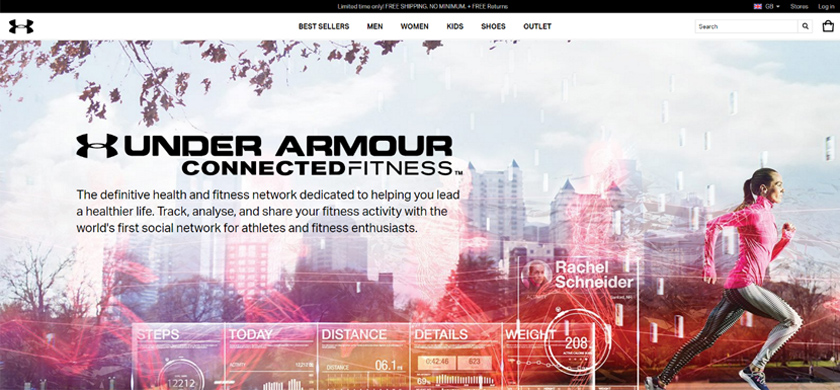Since the very beginning of 2016, Artificial Intelligence (AI) has made incredible progress.
From autonomous driving to the AlphaGo’s victory over the world champ Lee Sedol, the achievements made by AI in the past year have been more than impressive.
Google’s DeepMind AI can now read lips better than a professional and has mastered the infamously difficult video game Montezuma’s Revenge, learning to play the game the same way humans do – through trial and error. IBM’s AI platform, Watson, doesn’t just look for keywords or matches like a search engine does. It reads, analyses and interprets texts like a person, using natural language processing.
It has access to as much as 80% of all the existing information today, which makes it much smarter than any human on Earth. Tesla’s AI power hides in its innovative self-driving cars, which now have not one but eight cameras to provide 360-degree visibility. Artificial Intelligence has been in our lives for years now, but what does this mean for businesses and how will it change the job of marketer?
Excitement about artificial intelligence has been present for quite a while. Some believe it will fundamentally revolutionise the nature of digital marketing, others don’t anticipate that it will be truly transformational. The reality is that AI is only here to stay and its influence keeps growing. It goes without saying that smart machines won’t run themselves and won’t take over the world… not yet at least but the rapid progress of AI drastically changes human interactions and accordingly the nature of marketing.
The following statistics indicate exactly how big the impact of AI is going to be in the near future:
• 85% of customer interactions are projected to be managed without a human involvement by 2020 (Gartner)
• $1.5 billion were invested in AI as of May 2016 (CB Insights)
• 1, 196 AI startups were listed on Crunchbase, an online listing of all venture capital funded startups in the world (Crunchbase)
• 16% of American jobs will be replaced by AI by the end of the decade (Forrester)
The world is already embracing Artificial Intelligence and many businesses are being currently affected by its advancement.
So, what is it that marketers should take into consideration when it comes to artificial intelligence and its influence on digital marketing?
Personalised content will become even more personal
Marketers have access to an abundance of data and the recent developments in artificial intelligence promise to help marketers take advantage of all this information, enabling them to deliver a highly-personalised experience to customers. As machine learning prevails over human analysis, marketers will be able to understand consumers’ true desires and connect to them on a deeper level.
As customers are increasingly demanding a truly personalised experience from brands, marketers will have to rely more heavily on AI and machine learning to help them make sense of all this data and continue to engage with customers effectively. Ultimately, this will result in new levels of personalised marketing. Interactions will be tailored to the exact wants and needs of the audience that brands are trying to reach. The entire online experience will be designed to ensure any type of promotional content is relevant to the end user.
For example, with IBM’s Watson, AI travel companies like WayBlazer can apply cognitive analytics to social data to understand what a destination is really like and who it will appeal to, creating an experience that revolves around the customer. WayBlazer use Watson technology to give highly personalised recommendations for travel, including local insights and points of interest for consumers.
One of the biggest brands in athletic wear, Under Armour, is another example of leveraging IBM’s AI technology to offer personalised training, recovery and nutrition recommendations. Watson will analyse users’ daily activity, sleep, and food data and share it with Under Armour’s core health and fitness app, UA Record. It will then show insights that compare the users with other similar members.

As ads will be strictly targeted to the needs of the audience, user engagement will improve and brands implementing machine learning and content personalisation the right way will see increases in revenue and conversion rates. Users will only be shown ads that are particularly relevant to them, meaning that firms could potentially see a better ROI by showing fewer ads, but to the right audience. This will result not only in an improved user experience but also higher levels of user engagement.
2017 will be the year of chatbots and virtual assistants
Already in 2016 chatbots and virtual assistants saw incredible growth. Facebook managed to allure many brands and developers to its platform to create bots for just about anything, with an example being KLM’s Messenger chatbot, which allowed passengers to ask for directions to the nearest clothes store, ATM or restaurant by simply sending an emoji.
Due to their sci-fi nature and human-like interactions, both bots and virtual assistants not only generate a lot of excitement but also a fair amount of spend. Gartner predicts that by the end of 2017, marketers will spend over $250 million collectively on conversational technologies such as virtual agents and chatbots. Furthermore, room-based screenless devices such as the Amazon Echo will be in over 10 million homes.
Consumers will spend much less time navigating apps and browsing websites, and will instead simply start asking questions and chatting back and forth with bots. Many brands are already finding their mobile applications too costly due to maintenance and the requirement for constant upgrades.
According to Adobe Research, app downloads have fallen by 38% in the U.S since 2014 and by 5% in the U.K., Germany and France. Alternative options such as chatbots are on the rise. Websites or apps won’t be replaced but powered by bots, leading to people’s queries being answered in a much shorter time and thus improving levels of customer care.
AI won’t replace humans but will significantly simplify their lives
While it can’t be argued that the introduction of AI will significantly transform the very role of humans in marketing, this doesn’t mean that the businesses of the future won’t need marketers anymore. Nowadays, marketers use big data to uncover insights, analyse market trends and create content that generates brand awareness.
In a few years’ time, some of these activities will be performed by AI. Its ability to adapt to changes in real-time will reduce the need for marketers to adjust campaigns according to new trends, and human involvement in campaign implementation will be much lower. One of the best features of AI is that the more it is used, the more efficient it becomes, as it learns constantly and adapts to new environments, being able to anticipate changes as they happen.
Marketers will be the ones to establish guidelines for AI and make sure every interaction remains within the brand context and is consistent with its vision. While AI tracks emerging trends and optimises campaigns in real-time, marketing teams will be able to concentrate on the more subjective aspects of campaigns while at the same time having AI perform the more laborious tasks for them.
Marketers will be involved in everything creative that requires understanding the customer and figuring out what the overall objective is. All the repetitive, time-consuming and logic-driven tasks will be predominantly performed by AI, giving the opportunity for marketers to be more creative and focus their time and effort on the more delicate matters, such as coming up with new ideas on how to transform their marketing campaigns and improve the overall business results.
Problems with AI
AI in marketing is often confusing. Demandbase’s survey shows that even though 80% of all marketing executives believe that AI will revolutionise marketing by 2020, only 26% are confident in their understanding of how AI is used in marketing and only 10% are using it today. Many marketers feel threatened by the loss of control. They have concerns integrating AI into already well-established and working systems within their organisation and worry that employees will find it challenging to adapt to the changes.
Furthermore, a survey conducted by Boxever shows that there is a gap between marketers’ and consumers’ perceptions of digital transformation and innovation in AI. Even though marketers believe consumers are ready for AI, the reality is that consumers seem to be rather misinformed when it comes to developments in this field.
While marketers have the ability to go to conferences and listen to lectures from field experts which help them understand the true value of AI in marketing, unfortunately that’s not the case with consumers. This is one of the main reasons why there is a disconnect between expectations and reality when it comes to AI.
A huge 79% of marketers think that consumers are ready for AI – but the reality is that nearly 45% of consumers disagree that AI will improve their experience with brands and almost 50% are somewhat unexcited about innovations in AI, especially about the developments around chatbots.

Final thoughts
Modern marketers need to accept the fact that the world of digital is changing and now AI could potentially impact the decisions that consumers make. AI is already here, and it is only getting smarter and better integrated within our lives.
Businesses that embrace AI will be able to differentiate their most-valued users and offer them far more tailored treatment. Marketers will be able to recognise users’ needs and wants in real-time simply because AI will already know everything about the online behaviour of consumers in the past. This will help them deliver a differentiated, highly-personalised experience that will in turn help improve customer service and build brand loyalty.
Artificial Intelligence is among several other current trends, including Augmented and Virtual Reality, that are changing the state of digital. Working in a digital agency, the changing digital marketing landscape has been something we’ve already thought and talked about a lot.
We are all excited and looking forward to all the opportunities AI is going to bring to digital.



